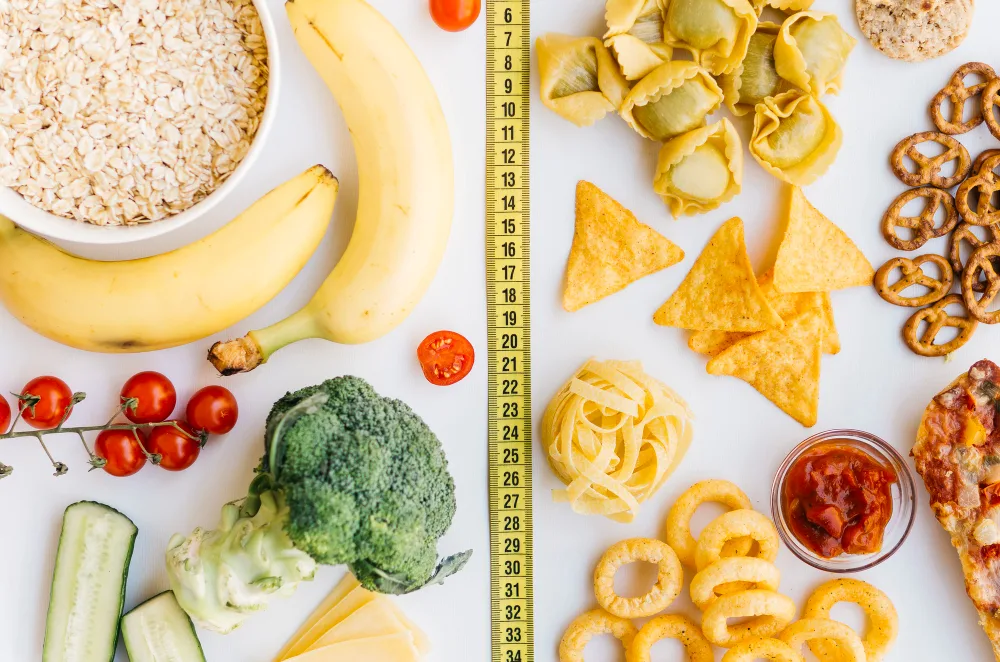Overcoming Common Nutritional Challenges Post-Bariatric Surgery is vital for achieving long-term health and weight maintenance after procedures such as gastric sleeve or gastric bypass. While bariatric surgery can lead to significant and sustainable weight loss, it also introduces complex changes to how your body processes food. Issues like protein deficits, vitamin deficiencies, digestive sensitivities, and portion control all demand careful attention. This comprehensive guide explores the primary nutritional hurdles you might face following bariatric surgery and presents targeted solutions for each. Whether you’re newly post-op or well into your bariatric journey, understanding these challenges and adopting smart strategies can help you stay on track and enjoy a fuller, healthier life.
Understanding Post-Bariatric Nutritional Hurdles
The Significance of Meeting Nutrient Needs
After bariatric surgery, reduced stomach capacity and altered digestion can make it difficult to obtain all the necessary nutrients through food alone. These limitations affect how your body:
- Breaks Down Macros: Protein, carbs, and fats require different absorption pathways that might be shortened or bypassed.
- Absorbs Micronutrients: Vitamins and minerals crucial for energy, immunity, and organ function may be under-consumed.
- Regulates Hunger and Satiety: Altered hormonal signals can complicate how you recognize fullness or cravings.
Failing to address these unique needs could cause issues like fatigue, hair loss, anemia, or stunted weight loss. Thus, overcoming common nutritional challenges post-bariatric surgery is about proactively tackling these inherent limitations.
Potential Health Consequences of Unmet Nutritional Demands
Neglecting your dietary guidelines can lead to unwanted side effects and health setbacks:
- Vitamin Deficiencies: Insufficient B12, iron, or vitamin D can cause anemia, weak bones, or neurological issues.
- Muscle Wasting: Low protein intake might result in muscle loss, hampering weight-loss maintenance and daily strength.
- Gastrointestinal Distress: Eating foods not well-tolerated post-surgery can lead to discomfort or dumping syndrome.
Consulting with a medical professional or registered dietitian ensures these concerns are addressed proactively and that your dietary plan is optimized for post-operative recovery.
Tackling Protein Deficits After Bariatric Surgery
Why Protein is Essential
Protein supports muscle repair, immune function, and hormone regulation—critical roles intensified after bariatric procedures. Common guidelines suggest aiming for about 60–100 grams of protein daily, depending on your surgical type and healthcare provider’s advice.
Tips to Boost Protein Intake
- Prioritize Protein First
- Start each meal with lean meats, fish, tofu, or cottage cheese.
- Opt for Protein Supplements
- Shakes or powders can help bridge gaps without overfilling your smaller stomach.
- Use Creative Prep Methods
- Shredded chicken in a veggie-rich broth or air-fried turkey cutlets from the Bariatric Air Fryer Cookbook offer variety.
Pairing protein with low-glycemic carbs and healthy fats helps stabilize blood sugar and prolong fullness.
Avoiding Over-Consumption Pitfalls
- Measure Portions: Even protein can lead to weight stalls if excessively consumed.
- Chew Thoroughly: Proper mastication prevents discomfort and supports digestion.
- Rotate Sources: Cycling between fish, poultry, beans, and dairy wards off boredom.
Addressing Micronutrient Deficiencies
Key Vitamins and Minerals Post-Bariatric
- Vitamin B12: Impaired gastric acid production post-surgery may reduce B12 absorption, risking fatigue and neurological symptoms.
- Iron: Bypass procedures in particular can skip the main absorption sites for iron, potentially leading to anemia.
- Calcium and Vitamin D: Both support bone health, yet limited stomach capacity or malabsorption complicates intake.
- Other B Vitamins: Folate (B9), thiamine (B1), and riboflavin (B2) might be under-consumed if your food variety narrows.
Recommended Solutions for Overcoming Common Nutritional Challenges Post-Bariatric Surgery
- Multivitamin Regimen: Most patients need daily bariatric-specific multivitamins to fill gaps.
- Mineral Supplements: Iron, calcium citrate, zinc, or magnesium may be individually prescribed based on blood tests.
- Regular Blood Panels: Periodic lab checks help identify emerging shortfalls early.
For detailed recipes that incorporate nutrient-dense foods, reference the Bariatric Cookbook, which targets balanced macros and diverse vitamin sources.
Digestive Sensitivities and Food Tolerances
Adapting to New Tolerances
Post-bariatric digestion often changes drastically, prompting specific tolerances or aversions:
- Dairy Intolerance: Some patients develop lactose sensitivity. Low-lactose products or plant-based alternatives can replace traditional dairy.
- High-Fiber Foods: Overly fibrous veggies may cause gas or bloating, requiring gradual reintroduction.
- Sugar Sensitivity: Even moderate sugar can trigger dumping syndrome, making low-sugar alternatives essential.
Strategies for Gradual Food Reintroduction
- Start Small: Sample a tiny portion to gauge tolerance before increasing.
- Try Different Preparations: Steaming, roasting, or pureeing can make fibrous vegetables easier on your stomach.
- Pause Problematic Foods: If a certain item causes discomfort, wait a few weeks and re-test your tolerance gently.
Our Mindful Eating post expands on paying attention to body cues and tailoring food choices to your evolving comfort.
Confronting Psychological and Emotional Barriers
Emotional Eating and Cravings
Food often serves as a coping mechanism for stress or emotional discomfort:
- Identify Triggers: Recognize stress, boredom, or sadness as potential overeating cues.
- Develop Coping Mechanisms: Replace emotional snacking with hobbies, mindfulness, or physical activity.
- Seek Counseling or Support Groups: Professional help or peer support can offer lasting change.
Reinforcing Positive Mindsets
- Celebrate Small Wins: Achieving a new protein milestone or trying a new vegetable fosters confidence.
- Stay Connected: Online bariatric communities share recipes, tips, and empathy for your journey.
- Keep Learning: Explore resources like the Gastric Sleeve Cookbook or the Gastric Bypass Cookbook for ongoing inspiration.
Overcoming Portion Distortions and Eating Pace
Portion Control Essentials
Even nutrient-rich foods can sabotage progress if you consume excessive amounts:
- Use Measuring Tools: Scales, cups, and spoons reinforce consistent serving sizes.
- Adopt Smaller Plates: Visually fosters the feeling of a full plate while limiting portions.
- Plan Meals Ahead: Pre-portion your dishes to reduce impulsive scoops or second helpings.
For deeper insight into portion mastery, read our Mastering Portion Control article, focusing on precise measurement techniques.
Eating Pace and Chewing Thoroughly
Rapid eating or large bites may overwhelm a post-surgery stomach, leading to discomfort:
- Set a Timer: Take 20–30 minutes per meal, minimizing the risk of overeating.
- Mini Breaks: Put down utensils between bites to gauge fullness signals.
- Thorough Chewing: Breaking down each morsel helps absorption and eases stomach strain.
Dealing with Plateaus and Weight Maintenance
Managing Metabolic Adjustments
Significant weight loss can slow metabolism over time, resulting in potential weight plateaus:
- Vary Your Workouts: Alternate between light cardio, strength training, and flexibility exercises.
- Revisit Protein Ratios: Adjust macros if weight stalls, possibly increasing protein or reducing simple carbs.
- Switch Meal Composition: Vary your meals with new vegetables, lean meats, or low-carb sides to challenge dietary monotony.
Leveraging Accountability
- Food Journals: Document daily meals, snacks, and hydration to spot patterns or slip-ups.
- Regular Check-ins: Healthcare teams can detect evolving nutritional needs or mild deficiencies before they escalate.
- Support Circles: Engaging in local or online bariatric groups fosters encouragement and shared advice.
Nutritional Supplements and Professional Advice
Tailoring Supplementation to Surgical Type
Some post-op patients are prone to specific deficiencies depending on the procedure. For instance:
- Bypass Patients: Higher risk of B12, iron, and calcium gaps due to intestinal rerouting.
- Sleeve Patients: Reduced stomach size can hamper ingestion of bulky fiber or proteins in adequate volume.
- Duodenal Switch: Greater malabsorption of fats, potentially requiring specialized vitamin formulations.
Consulting with a bariatric-focused dietitian ensures a supplement regimen that aligns with your surgical outcome.
Recommended Supplements for Overcoming Common Nutritional Challenges Post-Bariatric Surgery
- Multivitamin: Cover overall vitamin and mineral basics, typically in chewable or liquid form.
- Calcium Citrate with Vitamin D: Maintain bone health and support nerve function.
- Iron with Vitamin C: Improve iron absorption, mitigating anemia risk.
- B12: Sublingual or injection form to circumvent reduced intrinsic factor post-surgery.
Practical Meal Strategies to Combat Nutritional Challenges
High-Protein Recipes
Focus on recipes that integrate lean protein with vegetables or low-GI carbs:
- Chicken and Veggie Sheet Pan: Quick, one-pan dinners streamline cooking while distributing macros efficiently.
- Salmon and Broccoli Bowl: A simple marinade—like lemon and herbs—provides flavor without sugar-laden sauces.
Flavorful Low-Calorie Sauces
Avoid high-sugar or cream-based sauces by:
- Using Pureed Veggies: Roasted peppers or tomatoes create nutrient-dense, lightly sweet sauces.
- Incorporating Yogurt: Greek yogurt with herbs yields creamy textures minus extra fat.
- Light Marinades: Infuse poultry or fish with herbs, vinegar, or citrus juice for vibrant, low-cal flavor.
For more sauce inspiration, explore our Bariatric Sauce Solutions: Flavor Without Guilt post, which delves into specialized condiment options that align with post-op needs.
Cooking Methods That Preserve Nutrients
- Air Frying: Achieves crispy textures with less oil. (See the Bariatric Air Fryer Cookbook for healthy crispness ideas.)
- Steaming: Retains vitamins and minerals within veggies or proteins.
- Instant Pot/Pressure Cooking: Minimizes cooking time while locking in moisture and micronutrients.
Emotional and Behavioral Aspects of Nutrition
Handling Stress and Food Cravings
Emotional triggers can undermine best intentions:
- Mindful Techniques: Take slow breaths, focus on the meal’s taste and texture, and evaluate actual hunger vs. emotional desire.
- Alternate Outlets: Distract yourself with a short walk, journaling, or calling a supportive friend.
- Therapeutic Aids: Counselors specialized in post-bariatric care can address unresolved emotional eating patterns.
Self-Monitoring for Continued Growth
Track these metrics to ensure alignment with your goals:
- Weight Trends: Weekly weigh-ins, mindful of normal fluctuations.
- Energy Levels: Noting surges or slumps can indicate dietary imbalances.
- Bowel Regularity: Significant changes can reflect fiber gaps or dehydration.
Integrating Helpful Resources
Bariatric-Focused Cookbooks
Exploring specialized cookbooks offers ready-made solutions for diverse diets:
- Bariatric Cookbook: A broad range of portion-sized meals for post-surgery health.
- Bariatric Air Fryer Cookbook: Crisp, low-fat recipes that align with smaller stomach capacities.
Books like these streamline planning and spark culinary creativity when facing monotony or plateaus.
Medical Checkups and Group Support
- Regular Bloodwork: Detect micronutrient issues early.
- Support Groups: Gather ideas, share triumphs, and commiserate over common stumbling blocks.
- Consult Dietitians: Tailor your plan for protein, fiber, vitamins, and daily calorie targets.
Conclusion: A Comprehensive Approach to Nutritional Success
Overcoming Common Nutritional Challenges Post-Bariatric Surgery demands a blend of informed meal choices, consistent portion sizes, and mindfulness around nutrients. By focusing on protein adequacy, rotating fruit and vegetable sources, and carefully monitoring your supplementation, you can navigate potential deficiencies and maintain steady weight loss (or preservation). Managing emotional triggers, investing in varied cooking techniques, and consulting with healthcare professionals all play pivotal roles in ensuring your success. With consistent effort and the right resources—like specialized cookbooks, portion control tactics, and support networks—you’ll confidently address these challenges, sustaining long-term health and a renewed quality of life.


Leave a Reply